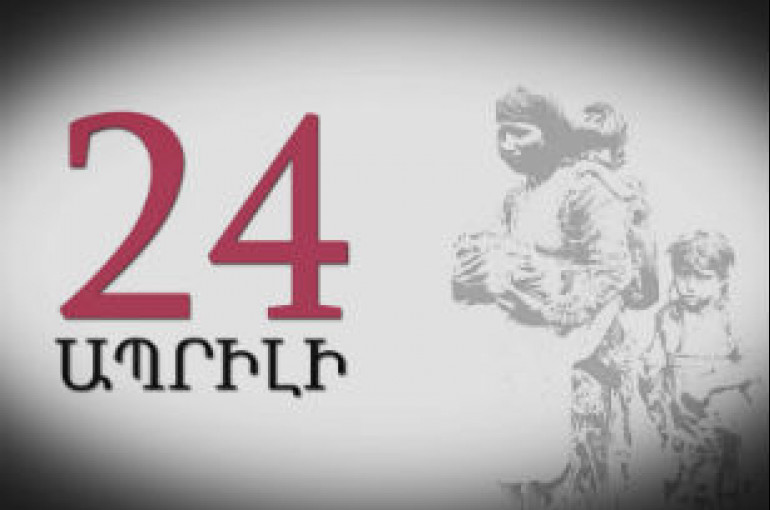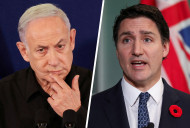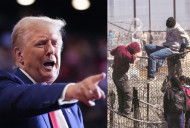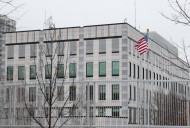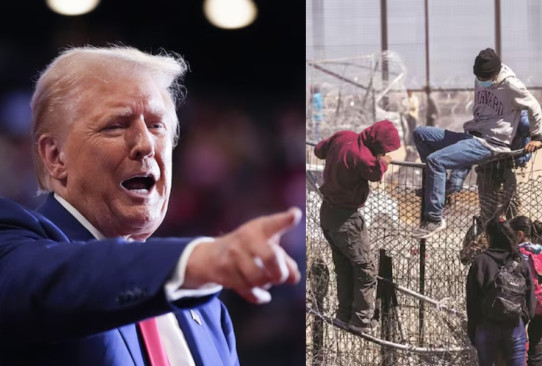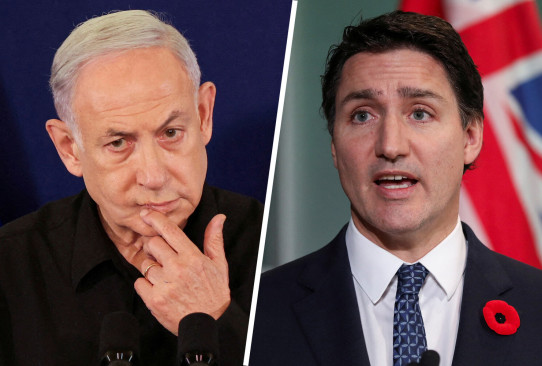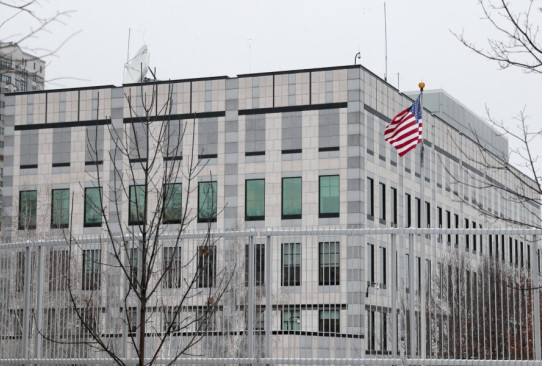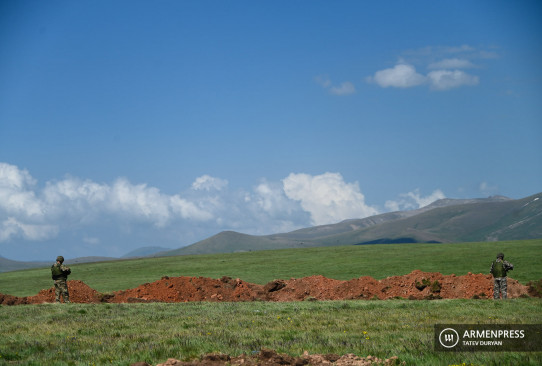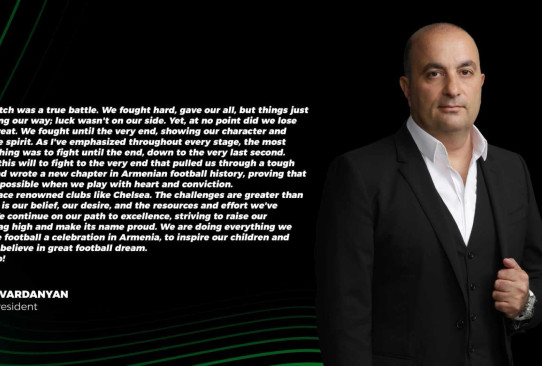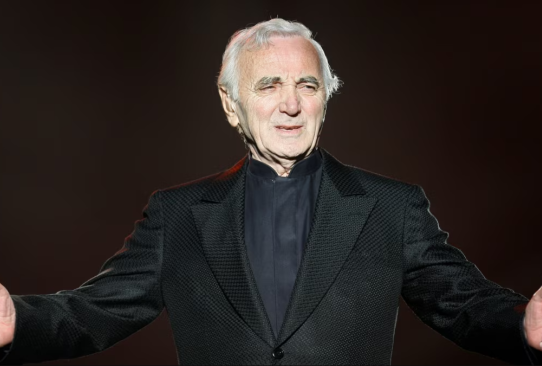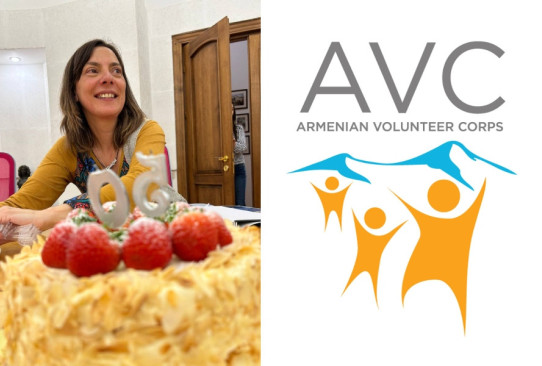Turks were giving death warrant to a whole race – NY Times overview on Armenian Genocide
On the eve of World War I, there were two million Armenians in the declining Ottoman Empire. By 1922, there were fewer than 400,000. The others — some 1.5 million — were killed in what historians consider a genocide.
As David Fromkin put it in his widely praised history of World War I and its aftermath, “A Peace to End All Peace”: “Rape and beating were commonplace. Those who were not killed at once were driven through mountains and deserts without food, drink or shelter. Hundreds of thousands of Armenians eventually succumbed or were killed .”
The man who invented the word “genocide”— Raphael Lemkin, a lawyer of Polish-Jewish origin — was moved to investigate the attempt to eliminate an entire people by accounts of the massacres of Armenians. He did not, however, coin the word until 1943, applying it to Nazi Germany and the Jews in a book published a year later, “Axis Rule in Occupied Europe.”
But to Turks, what happened in 1915 was, at most, just one more messy piece of a very messy war that spelled the end of a once-powerful empire. They reject the conclusions of historians and the term genocide, saying there was no premeditation in the deaths, no systematic attempt to destroy a people. Indeed, in Turkey today it remains a crime — “insulting Turkishness” — to even raise the issue of what happened to the Armenians.
In the United States, a powerful Armenian community centered in Los Angeles has been pressing for years for Congress to condemn the Armenian genocide. Turkey, which cut military ties to France over a similar action, has reacted with angry threats. A bill to that effect nearly passed in the fall of 2007, gaining a majority of co-sponsors and passing a committee vote. But the Bush administration, noting that Turkey is a critical ally — more than 70 per cent of the military air supplies for Iraq go through the Incirlik airbase there — pressed for the bill to be withdrawn, and it was.
The roots of the genocide lie in the collapse of the Ottoman Empire.
The empire’s ruler was also the caliph, or leader of the Islamic community. Minority religious communities, like the Christian Armenians, were allowed to maintain their religious, social and legal structures, but were often subject to extra taxes or other measures.
Concentrated largely in eastern Anatolia, many of them merchants and industrialists, Armenians, historians say, appeared markedly better off in many ways than their Turkish neighbors, largely small peasants or ill-paid government functionaries and soldiers.
At the turn of the 20th Century, the once far-flung Ottoman empire was crumbling at the edges, beset by revolts among Christian subjects to the north — vast swaths of territory were lost in the Balkan Wars of 1912-13 — and the subject of coffee house grumbling among Arab nationalist intellectuals in Damascus and elsewhere.
The Young Turk movement of ambitious, discontented junior army officers seized power in 1908, determined to modernize, strengthen and “Turkify” the empire. They were led by what became an all-powerful triumvirate sometimes referred to as the Three Pashas.
In March of 1914, the Young Turks entered World War I on the side of Germany. They attacked to the east, hoping to capture the city of Baku in what would be a disastrous campaign against Russian forces in the Caucuses. They were soundly defeated at the battle of Sarikemish.
Armenians in the area were blamed for siding with the Russians and the Young Turks began a campaign to portray the Armenians as a kind of fifth column, a threat to the state. Indeed, there were Armenian nationalists who acted as guerrillas and cooperated with the Russians. They briefly seized the city of Van in the spring of 1915.
Armenians mark the date April 24, 1915, when several hundred Armenian intellectuals were rounded up, arrested and later executed as the start of the Armenian genocide and it is generally said to have extended to 1917. However, there were also massacres of Armenians in 1894, 1895, 1896, 1909, and a reprise between 1920 and 1923.
The University of Minnesota’s Center for Holocaust and Genocide Studies has compiled figures by province and district that show there were 2,133,190 Armenians in the empire in 1914 and only about 387,800 by 1922.
Writing at the time of the early series of massacres, The New York Times suggested there was already a “policy of extermination directed against the Christians of Asia Minor.”
The Young Turks, who called themselves the Committee of Unity and Progress, launched a set of measures against the Armenians, including a law authorizing the military and government to deport anyone they “sensed” was a security threat.
A later law allowed the confiscation of abandoned Armenian property. Armenians were ordered to turn in any weapons that they owned to the authorities. Those in the army were disarmed and transferred into labor battalions where they were either killed or worked to death.
There were executions into mass graves, and death marches of men, women and children across the Syrian desert to concentration camps with many dying along the way of exhaustion, exposure and starvation.
Much of this was quite well documented at the time by Western diplomats, missionaries and others, creating widespread wartime outrage against the Turks in the West. Although its ally, Germany, was silent at the time, in later years documents have surfaced from ranking German diplomats and military officers expressing horror at what was going on.
Some historians, however, while acknowledging the widespread deaths, say what happened does not technically fit the definition of genocide largely because they do not feel there is evidence that it was well-planned in advance.
The New York Times covered the issue extensively — 145 articles in 1915 alone by one count — with headlines like “Appeal to
Turkey to Stop Massacres.” The Times described the actions against the Armenians as “systematic,” “authorized, and “organized by the government.”
The American ambassador, Henry Morganthau Sr., was also outspoken. In his memoirs, the ambassador would write: “When the
Turkish authorities gave the orders for these deportations, they were merely giving the death warrant to a whole race; they understood this well, and in their conversations with me, they made no particular attempt to conceal the fact.”
Following the surrender of the Ottoman Empire in 1918, the Three Pashas fled to Germany, where they were given protection. But the Armenian underground formed a group called Operation Nemesis to hunt them down. On March 15, 1921, one of the pashas was shot dead on a street in Berlin in broad daylight in front of witnesses. The gunman pled temporary insanity brought on by the mass killings and a jury took only a little over an hour to acquit him. It was the defense evidence at this trial that drew the interest of Mr. Lemkin, the coiner of “genocide.”
Videos

Interview with Francis Malige, EBRD Managing Director
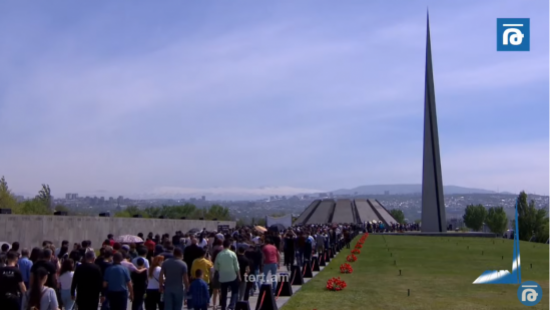
Armenians Commemorating 106th Anniversary of Genocide
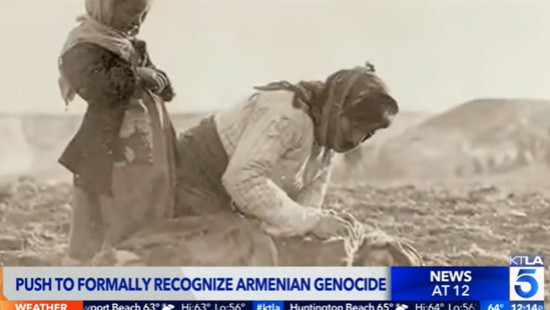
Biden Under Pressure to Recognize Armenian Genocide - KTLA 5 News

Governance and Oversight Capacities Account for Our Bank's Robust Management System - Philip Lynch, Independent Board Member at Ameriabank

'Mr. President, It Is Now in Your Power to Right Decades of Denial' - US Congressman Adam Schiff Urges Joe Biden to Recognize Armenian Genocide
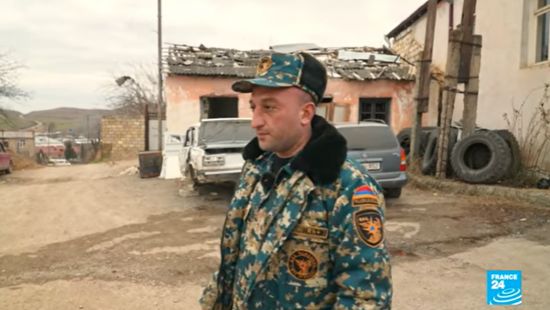
Armenians of Nagorno-Karabakh in Despair After Trauma of Military Defeat - France 24
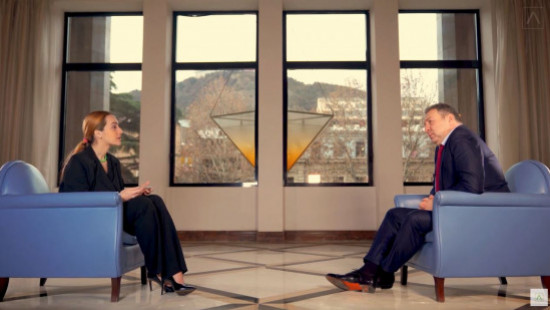
Interview with Kakhaber Kiknavelidze, an Independent Member of Ameriabank Board of Directors

Only Terrorists Keep Hostages, Putting Forward Preconditions for Their Release - Edmon Marukyan

Rep Adam Schiff Says Congress Should Recognize Artsakh
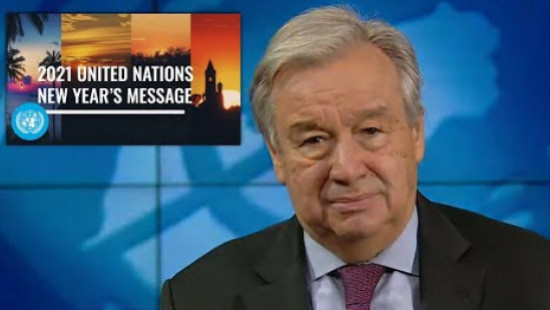
UN's Guterres Issues Global Appeal to Make 2021 'Year of Healing'

NASA's Mars 2020 Perseverance Rover Landing Animations

Azerbaijan Uses Prohibited Phosphorus Chemical Munitions - Defense Army Video

Artsakh Defense Army Units Neutralizing Azerbaijani Arms Supplies

Artsakh Defense Army Units Neutralizing Azerbaijani Drone
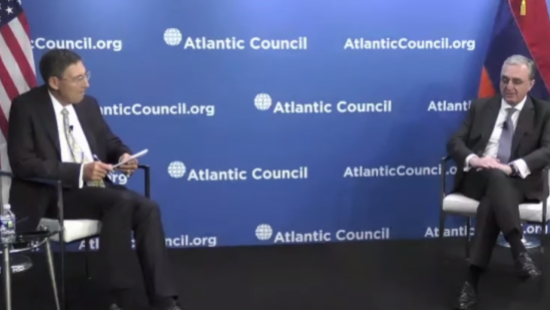
Nagorno-Karabakh's Status Has Been At the Heart of Our Approach - Zohrab Mnatsakanyan

Artsakh Defense Army Releases Video Featuring Damaged Azerbaijani Military Equipment

Artsakh Defense Army Units Inflicting Manpower Losses on Azerbaijan

Gas Pipeline Damaged in Azerbaijani Fire Targeting Nagorno-Karabakh's Capital

President Armen Sarkissian Meets Emmanuel Macron at Élysée Palace

Artsakh Defense Army Neutralizes Azerbaijani Military Hardware
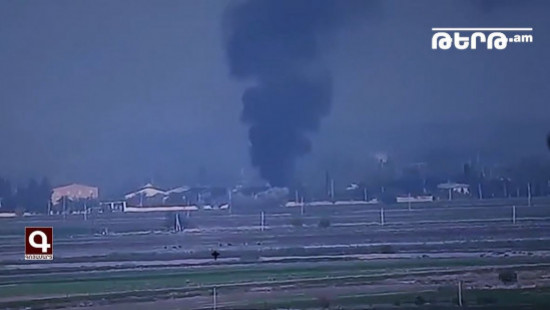
Artsakh Defense Army Units Neutralizing Azerbaijani Military Infrastructures

President Armen Sarkissian Meets with NATO Secretary-General in Brussels
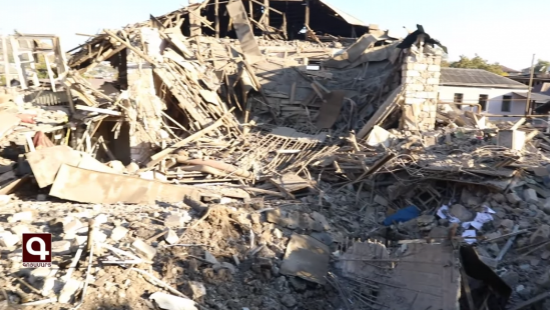
Buildings and Homes Lying in Ruins in Nagorno-Karabakh's Capital After Azerbaijani Shelling
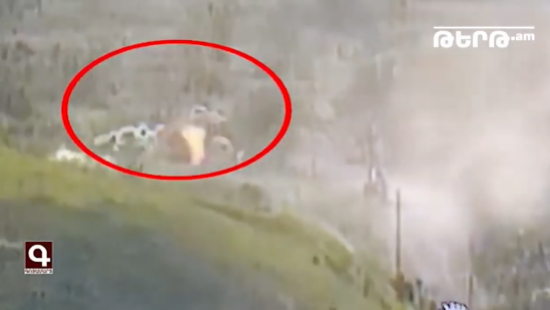
Artsakh Defense Army's Precision Fire Gives Deadly Blow to Enemy
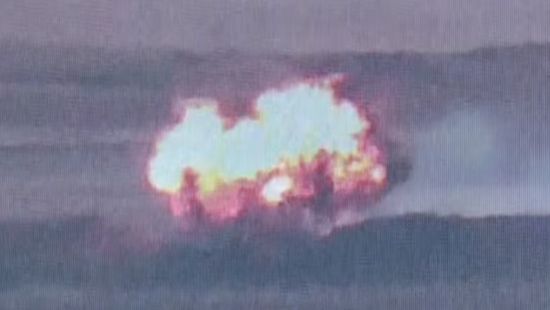
Artsakh Defense Army Units Destroying Azerbaijani Tank

Zohrab Mnatsakanyan: Ceasefire Does not Mandate Azerbaijan to Kill Civilians and Hit Civilian Settlements
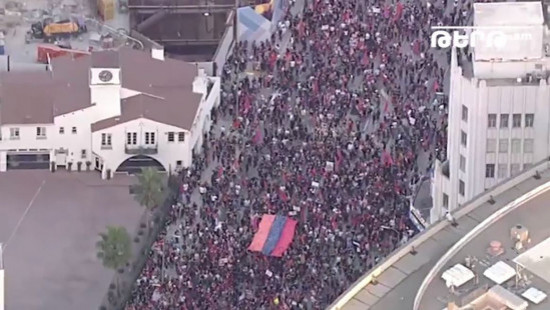
Armenians Protest Outside Turkrish Embassy in Los Angeles
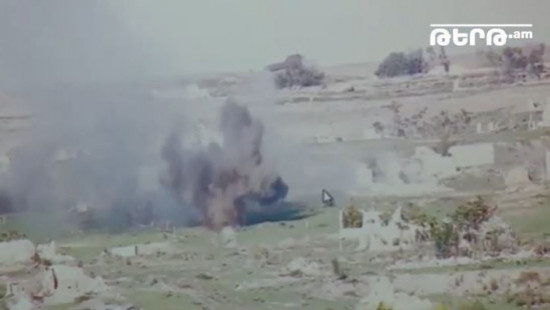
Losses in Azerbaijan's Military Featured in Defense Army Footage
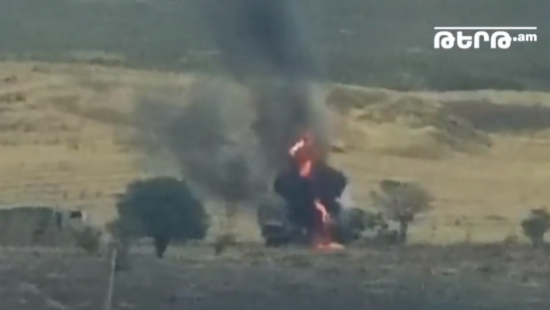
Artsakh Defense Army Neutralizing Adversary's Transport Column
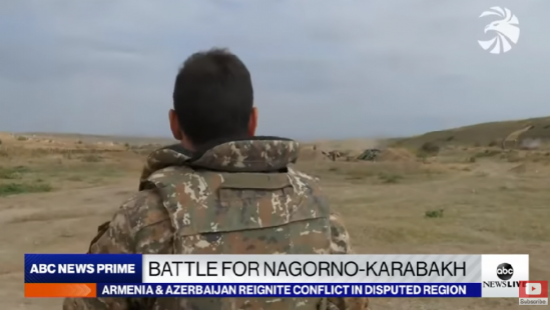
Turkey openly backs Azerbaijan 'far more aggressively than in the past' - ABC News on Syrian mercenaries fighting in Karabakh
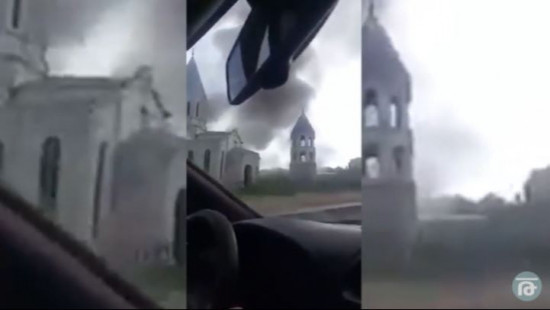
Iconic Armenian Church Hit in Azerbaijani Attacks in Nagorno-Karabakh City (photos)
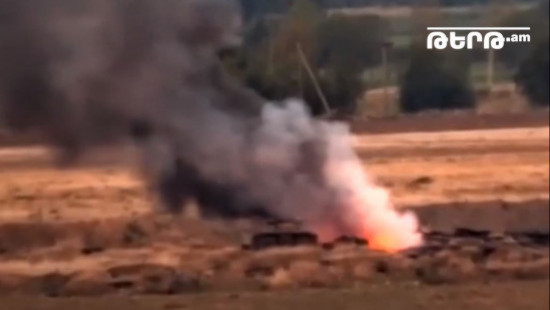
Artsakh Defense Army Continues High-Precision Strikes
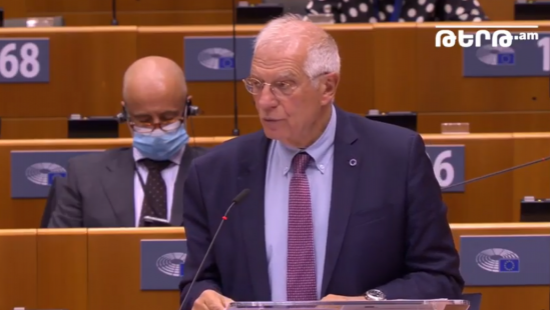
War Situation in Karabakh on European Parliament's Agenda
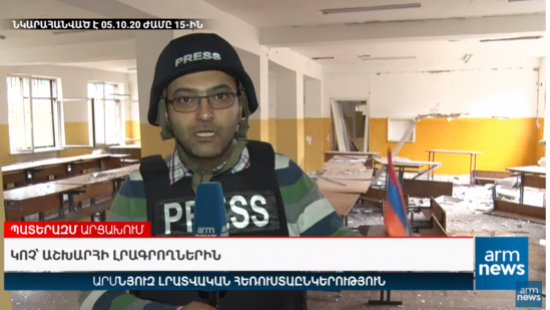
Call for Urgent Action: Armenian Journalist Brings Intn'l Colleagues' Attention to Situation iin Artsakh After Azerbaijani Attacks
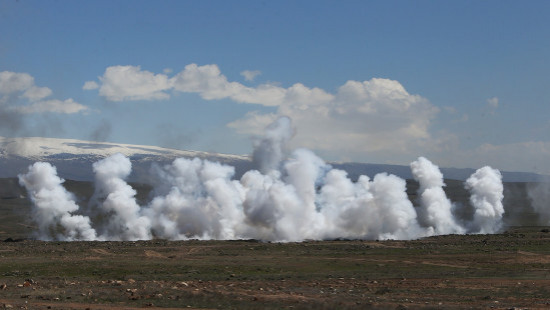
Turkey's Support to Syrian Mercenaries Fighting Against Artsakh: Facts About Azerbaijani Aggression
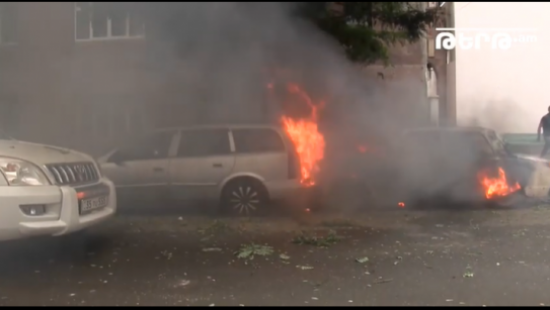
Nagorno-Karabakh's Capital Under Azerbaijani Strikes
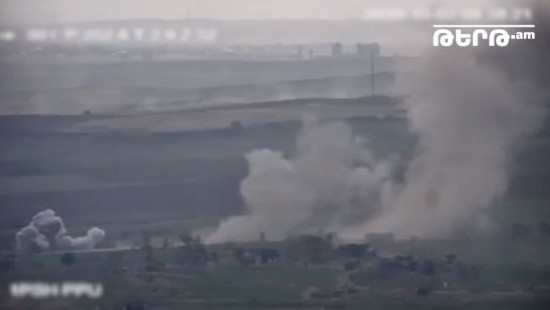
Armenian Armed Forces Neutralize Azerbaijani Defense Positions
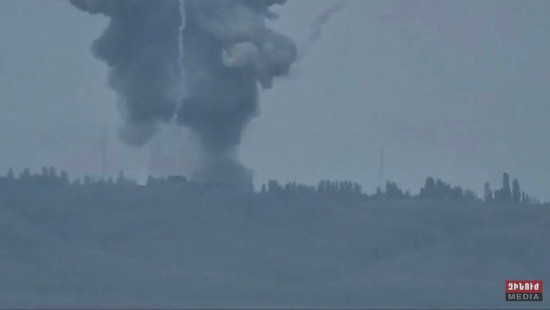
ArmenianTroops Destroy Azerbaijani Armored Fighting Vehicle on Frontline
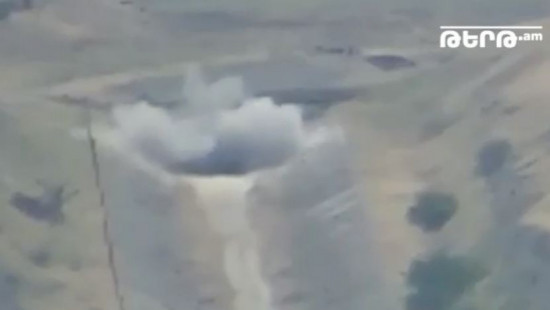
There is a solid evidence that Azerbaijan has launched a thoroughly planned attack on the NKR
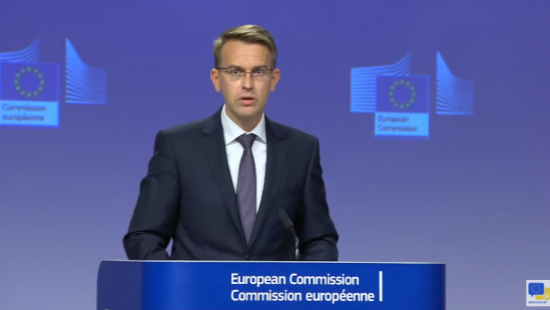
EU calls for Immediate End to Hostilities over Nagorno-Karabakh
-
 15:20 • 24.05.21
Interview with Francis Malige, EBRD Managing Director
15:20 • 24.05.21
Interview with Francis Malige, EBRD Managing Director
-
 11:39 • 24.04.21
Armenians Commemorating 106th Anniversary of Genocide
11:39 • 24.04.21
Armenians Commemorating 106th Anniversary of Genocide
-
 09:40 • 23.04.21
Biden Under Pressure to Recognize Armenian Genocide - KTLA 5 News
09:40 • 23.04.21
Biden Under Pressure to Recognize Armenian Genocide - KTLA 5 News
-
 15:34 • 22.04.21
Governance and Oversight Capacities Account for Our Bank's Robust Management System - Philip Lynch, Independent Board Member at Ameriabank
15:34 • 22.04.21
Governance and Oversight Capacities Account for Our Bank's Robust Management System - Philip Lynch, Independent Board Member at Ameriabank
-
 14:09 • 21.04.21
'Mr. President, It Is Now in Your Power to Right Decades of Denial' - US Congressman Adam Schiff Urges Joe Biden to Recognize Armenian Genocide
14:09 • 21.04.21
'Mr. President, It Is Now in Your Power to Right Decades of Denial' - US Congressman Adam Schiff Urges Joe Biden to Recognize Armenian Genocide
-
 12:37 • 03.04.21
Armenians of Nagorno-Karabakh in Despair After Trauma of Military Defeat - France 24
12:37 • 03.04.21
Armenians of Nagorno-Karabakh in Despair After Trauma of Military Defeat - France 24
-
 17:33 • 11.03.21
Interview with Kakhaber Kiknavelidze, an Independent Member of Ameriabank Board of Directors
17:33 • 11.03.21
Interview with Kakhaber Kiknavelidze, an Independent Member of Ameriabank Board of Directors
-
 17:57 • 26.01.21
Only Terrorists Keep Hostages, Putting Forward Preconditions for Their Release - Edmon Marukyan
17:57 • 26.01.21
Only Terrorists Keep Hostages, Putting Forward Preconditions for Their Release - Edmon Marukyan
-
 13:33 • 22.01.21
Rep Adam Schiff Says Congress Should Recognize Artsakh
13:33 • 22.01.21
Rep Adam Schiff Says Congress Should Recognize Artsakh
-
 09:42 • 29.12.20
UN's Guterres Issues Global Appeal to Make 2021 'Year of Healing'
09:42 • 29.12.20
UN's Guterres Issues Global Appeal to Make 2021 'Year of Healing'
-
 18:41 • 24.12.20
NASA's Mars 2020 Perseverance Rover Landing Animations
18:41 • 24.12.20
NASA's Mars 2020 Perseverance Rover Landing Animations
-
 13:33 • 31.10.20
Azerbaijan Uses Prohibited Phosphorus Chemical Munitions - Defense Army Video
13:33 • 31.10.20
Azerbaijan Uses Prohibited Phosphorus Chemical Munitions - Defense Army Video
-
 16:37 • 30.10.20
Artsakh Defense Army Units Neutralizing Azerbaijani Arms Supplies
16:37 • 30.10.20
Artsakh Defense Army Units Neutralizing Azerbaijani Arms Supplies
-
 11:25 • 28.10.20
Artsakh Defense Army Units Neutralizing Azerbaijani Drone
11:25 • 28.10.20
Artsakh Defense Army Units Neutralizing Azerbaijani Drone
-
 13:45 • 24.10.20
Nagorno-Karabakh's Status Has Been At the Heart of Our Approach - Zohrab Mnatsakanyan
13:45 • 24.10.20
Nagorno-Karabakh's Status Has Been At the Heart of Our Approach - Zohrab Mnatsakanyan
-
 11:51 • 24.10.20
Artsakh Defense Army Releases Video Featuring Damaged Azerbaijani Military Equipment
11:51 • 24.10.20
Artsakh Defense Army Releases Video Featuring Damaged Azerbaijani Military Equipment
-
 11:40 • 24.10.20
Artsakh Defense Army Units Inflicting Manpower Losses on Azerbaijan
11:40 • 24.10.20
Artsakh Defense Army Units Inflicting Manpower Losses on Azerbaijan
-
 10:39 • 24.10.20
Gas Pipeline Damaged in Azerbaijani Fire Targeting Nagorno-Karabakh's Capital
10:39 • 24.10.20
Gas Pipeline Damaged in Azerbaijani Fire Targeting Nagorno-Karabakh's Capital
-
 12:41 • 23.10.20
President Armen Sarkissian Meets Emmanuel Macron at Élysée Palace
12:41 • 23.10.20
President Armen Sarkissian Meets Emmanuel Macron at Élysée Palace
-
 12:16 • 23.10.20
Artsakh Defense Army Neutralizes Azerbaijani Military Hardware
12:16 • 23.10.20
Artsakh Defense Army Neutralizes Azerbaijani Military Hardware
-
 12:02 • 22.10.20
Artsakh Defense Army Units Neutralizing Azerbaijani Military Infrastructures
12:02 • 22.10.20
Artsakh Defense Army Units Neutralizing Azerbaijani Military Infrastructures
-
 10:35 • 22.10.20
President Armen Sarkissian Meets with NATO Secretary-General in Brussels
10:35 • 22.10.20
President Armen Sarkissian Meets with NATO Secretary-General in Brussels
-
 10:51 • 17.10.20
Buildings and Homes Lying in Ruins in Nagorno-Karabakh's Capital After Azerbaijani Shelling
10:51 • 17.10.20
Buildings and Homes Lying in Ruins in Nagorno-Karabakh's Capital After Azerbaijani Shelling
-
 15:09 • 15.10.20
Artsakh Defense Army's Precision Fire Gives Deadly Blow to Enemy
15:09 • 15.10.20
Artsakh Defense Army's Precision Fire Gives Deadly Blow to Enemy
-
 13:13 • 13.10.20
Artsakh Defense Army Units Destroying Azerbaijani Tank
13:13 • 13.10.20
Artsakh Defense Army Units Destroying Azerbaijani Tank
-
 12:56 • 12.10.20
Zohrab Mnatsakanyan: Ceasefire Does not Mandate Azerbaijan to Kill Civilians and Hit Civilian Settlements
12:56 • 12.10.20
Zohrab Mnatsakanyan: Ceasefire Does not Mandate Azerbaijan to Kill Civilians and Hit Civilian Settlements
-
 12:23 • 12.10.20
Armenians Protest Outside Turkrish Embassy in Los Angeles
12:23 • 12.10.20
Armenians Protest Outside Turkrish Embassy in Los Angeles
-
 17:23 • 09.10.20
Losses in Azerbaijan's Military Featured in Defense Army Footage
17:23 • 09.10.20
Losses in Azerbaijan's Military Featured in Defense Army Footage
-
 15:53 • 09.10.20
Artsakh Defense Army Neutralizing Adversary's Transport Column
15:53 • 09.10.20
Artsakh Defense Army Neutralizing Adversary's Transport Column
-
 14:11 • 09.10.20
Turkey openly backs Azerbaijan 'far more aggressively than in the past' - ABC News on Syrian mercenaries fighting in Karabakh
14:11 • 09.10.20
Turkey openly backs Azerbaijan 'far more aggressively than in the past' - ABC News on Syrian mercenaries fighting in Karabakh
-
 15:52 • 08.10.20
Iconic Armenian Church Hit in Azerbaijani Attacks in Nagorno-Karabakh City (photos)
15:52 • 08.10.20
Iconic Armenian Church Hit in Azerbaijani Attacks in Nagorno-Karabakh City (photos)
-
 10:57 • 08.10.20
Artsakh Defense Army Continues High-Precision Strikes
10:57 • 08.10.20
Artsakh Defense Army Continues High-Precision Strikes
-
 14:24 • 07.10.20
War Situation in Karabakh on European Parliament's Agenda
14:24 • 07.10.20
War Situation in Karabakh on European Parliament's Agenda
-
 19:31 • 05.10.20
Call for Urgent Action: Armenian Journalist Brings Intn'l Colleagues' Attention to Situation iin Artsakh After Azerbaijani Attacks
19:31 • 05.10.20
Call for Urgent Action: Armenian Journalist Brings Intn'l Colleagues' Attention to Situation iin Artsakh After Azerbaijani Attacks
-
 16:17 • 04.10.20
Turkey's Support to Syrian Mercenaries Fighting Against Artsakh: Facts About Azerbaijani Aggression
16:17 • 04.10.20
Turkey's Support to Syrian Mercenaries Fighting Against Artsakh: Facts About Azerbaijani Aggression
-
 12:39 • 04.10.20
Nagorno-Karabakh's Capital Under Azerbaijani Strikes
12:39 • 04.10.20
Nagorno-Karabakh's Capital Under Azerbaijani Strikes
-
 13:49 • 03.10.20
Armenian Armed Forces Neutralize Azerbaijani Defense Positions
13:49 • 03.10.20
Armenian Armed Forces Neutralize Azerbaijani Defense Positions
-
 10:12 • 29.09.20
ArmenianTroops Destroy Azerbaijani Armored Fighting Vehicle on Frontline
10:12 • 29.09.20
ArmenianTroops Destroy Azerbaijani Armored Fighting Vehicle on Frontline
-
 23:42 • 28.09.20
There is a solid evidence that Azerbaijan has launched a thoroughly planned attack on the NKR
23:42 • 28.09.20
There is a solid evidence that Azerbaijan has launched a thoroughly planned attack on the NKR
-
 18:45 • 28.09.20
EU calls for Immediate End to Hostilities over Nagorno-Karabakh
18:45 • 28.09.20
EU calls for Immediate End to Hostilities over Nagorno-Karabakh
Most popular articles Today Yesterday For a week
-
 Science/tech 16:55 • 18/11 The Results of the 19th Annual International Microelectronics Olympiad Summarized in Yerevan This year's Olympiad was conducted in two stages, with 332 participants from 16 countries, including the UAE, USA, Brazil, Israel, Italy, Lebanon, Armenia, Jordan, Sri Lanka, Chile, Peru, Portugal, Russia, Serbia, Vietnam, and France.
Science/tech 16:55 • 18/11 The Results of the 19th Annual International Microelectronics Olympiad Summarized in Yerevan This year's Olympiad was conducted in two stages, with 332 participants from 16 countries, including the UAE, USA, Brazil, Israel, Italy, Lebanon, Armenia, Jordan, Sri Lanka, Chile, Peru, Portugal, Russia, Serbia, Vietnam, and France. -
 Event 11:07 • 19/11 “New Career Opportunities and Perspectives”: a career fair will be organized for people of Artsakh The main goal of the event is to support the socio-economic integration of Artsakh residents displaced by the conflict into Armenian society. It aims to enhance their competitiveness in the labor market and address employment challenges.
Event 11:07 • 19/11 “New Career Opportunities and Perspectives”: a career fair will be organized for people of Artsakh The main goal of the event is to support the socio-economic integration of Artsakh residents displaced by the conflict into Armenian society. It aims to enhance their competitiveness in the labor market and address employment challenges.
Economy
-
16:51 • 11.11.24 New features for Armeconombank’s Premium cardholders
-
12:16 • 08.11.24 Ucom and Sunchild NGO install another solar plant in Areni
Event
-
14:40 • 19.11.24 Ucom’s 5G network launched in 11 new cities
Science/tech
-
14:18 • 08.05.24 AstraZeneca withdrawing Covid vaccine worldwide
